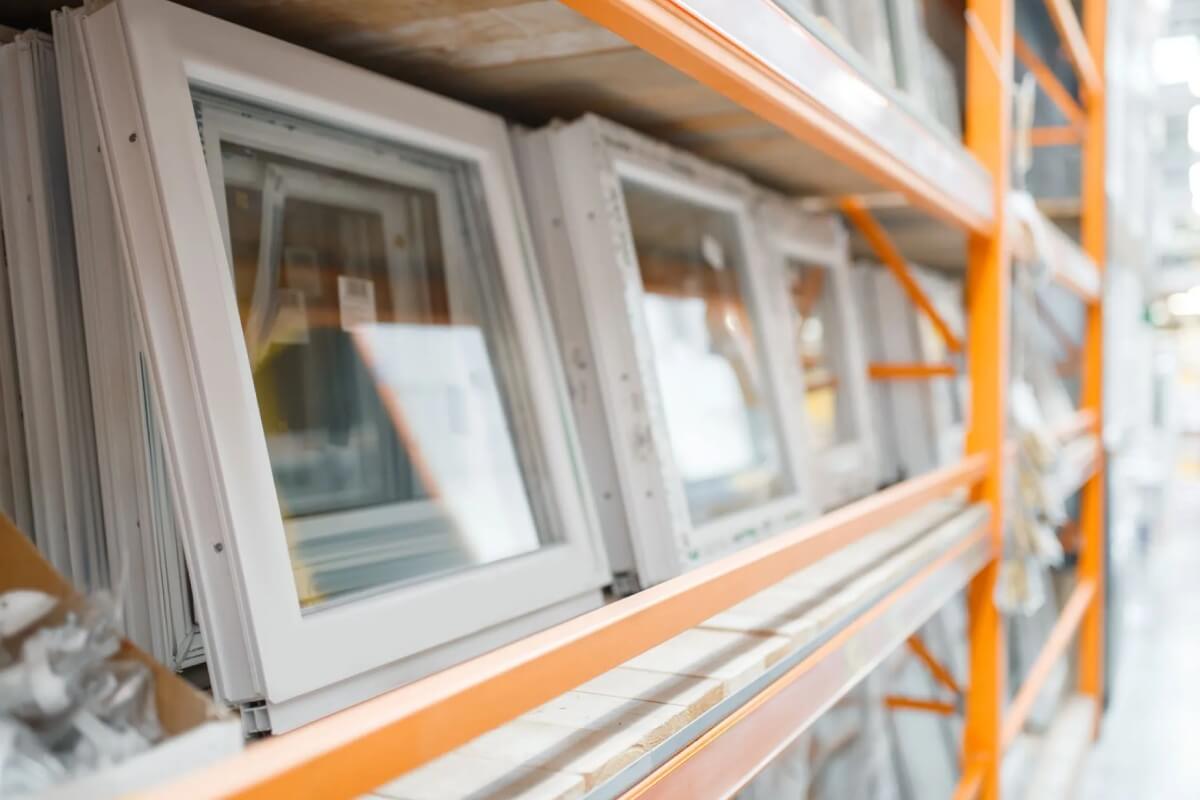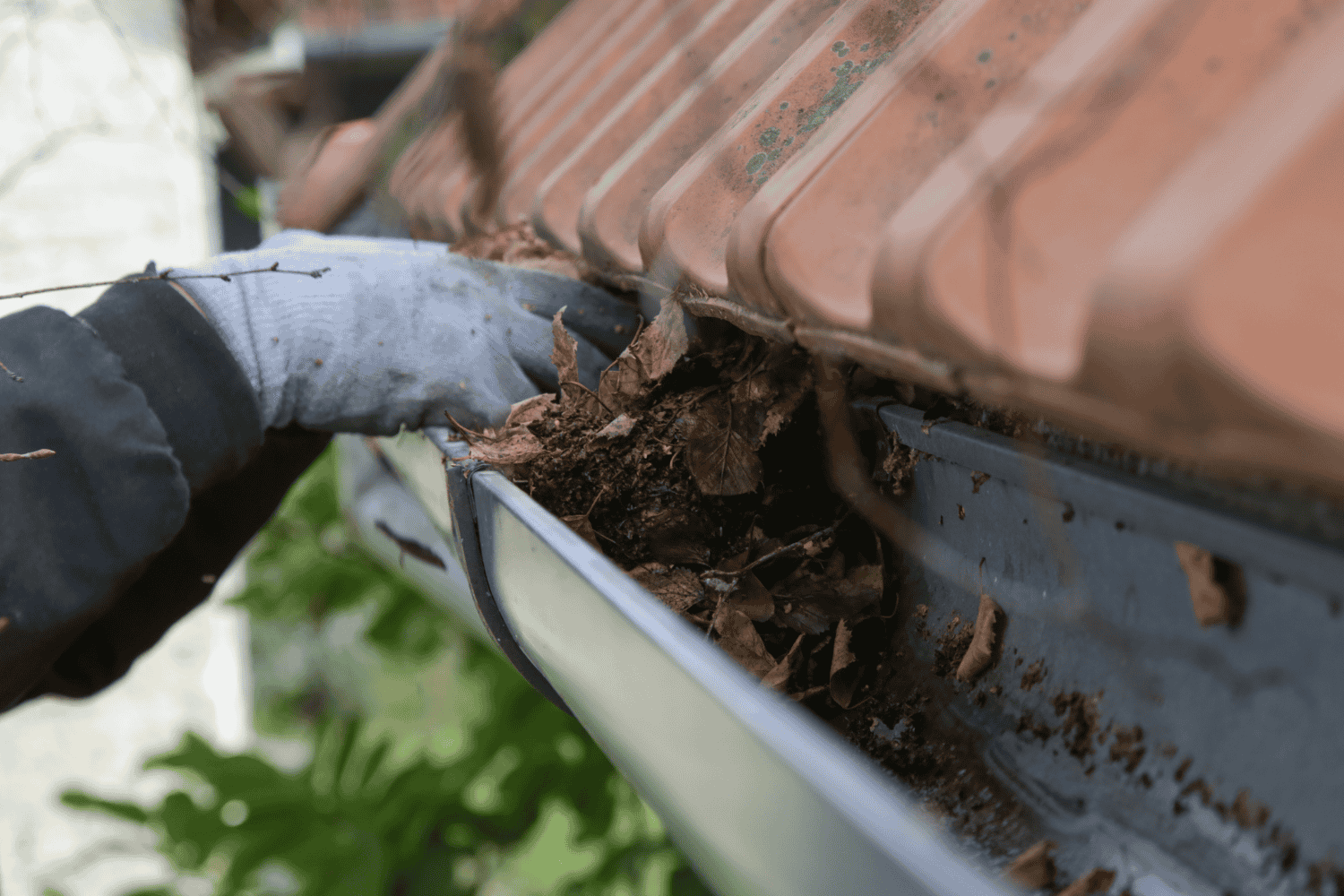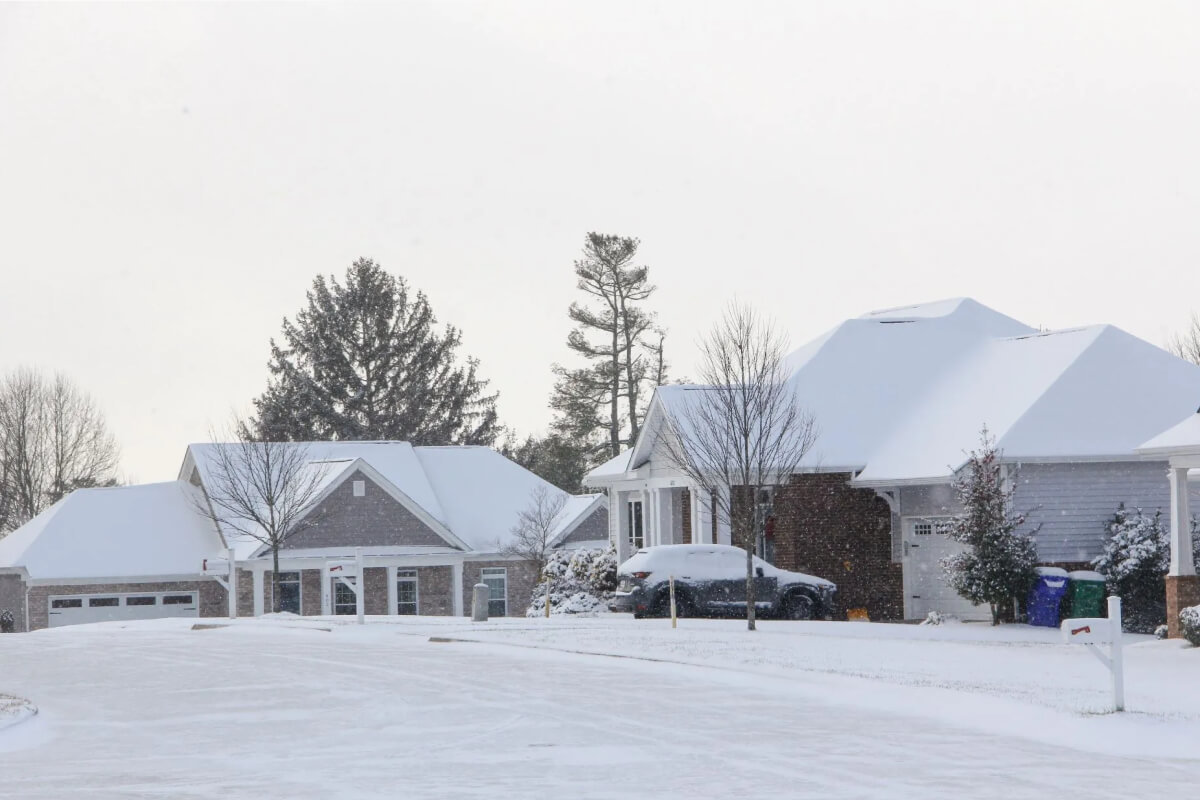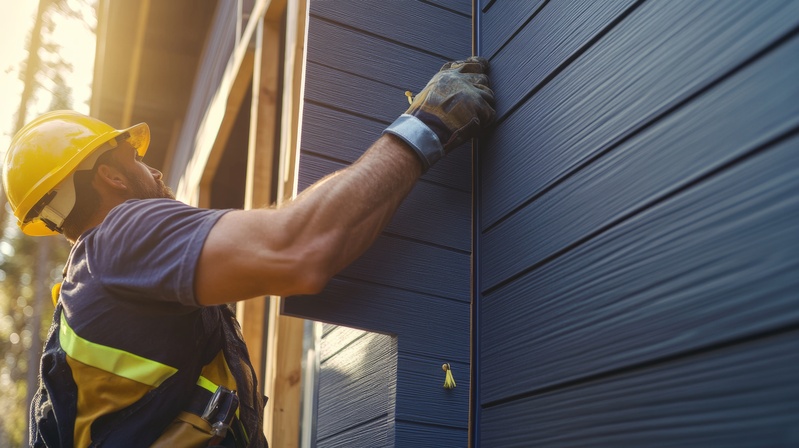Energy costs in Kansas City can rise quickly—whether you’re cranking the heat in icy winters or blasting the air conditioning during humid summers. One of the smartest ways to keep your home comfortable and reduce utility bills is by upgrading to energy efficient windows. Energy efficient windows work by minimizing heat transfer, which helps reduce energy consumption and save money on your utility bills.
But what exactly makes a window energy efficient? And how can you choose the best options for Kansas City’s climate? In this guide, we’ll break it down so you can make an informed choice for your home and budget, and show how energy efficient windows help save money over time.
Key Takeaways
- Energy efficient windows reduce heat transfer, keeping homes comfortable year-round
- Features like Low-E glass and gas fills improve insulation and block UV rays
- Kansas City’s climate makes window performance critical for savings and comfort
- Quality installation ensures maximum energy efficiency and durability
- Bordner offers trusted window replacement services backed by a lifetime workmanship warranty
Why Energy Efficiency Matters for Kansas City Homeowners
Kansas City weather is anything but predictable. From icy winter winds to blazing summer sunshine, our region experiences significant temperature swings that put extra strain on your HVAC system—and your wallet.
Older windows often:
- Leak air through worn seals
- Allow heat to escape during winter
- Let summer heat penetrate your home
- Provide little protection against UV rays
- Consist of single pane windows, which are a common source of energy loss
These problems increase your energy costs and make your home less comfortable. Replacing single pane windows with energy efficient models can significantly improve your home’s energy efficiency and reduce energy bills.
That’s why replacing outdated windows—especially replacing single pane windows with energy efficient options—is one of the best investments you can make in your Kansas City home to boost your home’s energy efficiency.
Explore more about improving energy efficiency in our window replacement services page.
What Makes a Window Energy Efficient?
Energy efficient windows are engineered to reduce heat transfer between your home and the outdoors. Energy efficient features—such as advanced glazing, gas fills, and specialized coatings—are the key factors that determine a window’s energy performance. This helps regulate indoor temperatures and minimizes the load on your heating and cooling systems.
Thermal transfer through windows can significantly impact a window’s energy efficiency, as it determines how much heat is gained or lost, affecting your home’s comfort and energy costs.
Key features that make windows energy efficient include:
- Multiple panes: Double or triple glazing uses multiple panes of glass to improve thermal performance, providing better insulation than single-pane windows.
- Insulating gas fills: Argon or krypton gas between panes slows air movement and reduces thermal transfer, further enhancing insulation.
- Low-E coatings: These coatings reflect infrared energy, improving the window’s energy efficiency by reducing unwanted heat gain or loss.
- Quality frames: Well-insulated frames help minimize heat transfer.
- Window type: The type of window, such as sliding windows, casement, or awning, can affect energy efficiency. Sliding windows, for example, offer space-saving benefits and, with proper design, can provide good insulation and control sunlight exposure.
- Weatherstripping and seals: These prevent air leakage, supporting overall energy efficient features.
Depending on these features, how much heat enters or leaves your home through the windows can vary greatly, making the right choices essential for optimal energy savings and comfort.
Low-E Glass Coatings
Low-emissivity (Low-E) glass features a microscopically thin low e coating that reflects infrared energy. In practical terms, this means:
- Heat stays inside during winter
- Solar heat is blocked during summer
- UV rays that fade furniture and flooring are reduced
A low e coating helps control solar radiation and visible light transmission, allowing more natural light to enter while reducing unwanted heat gain. Additionally, by improving insulation, low e coatings help maintain a warmer interior surface, which reduces condensation and enhances indoor comfort.
Low-E coatings are especially valuable in Kansas City, where summers bring intense sun, and winters bring significant heat loss risks.
Gas Fills Between Panes
Many energy efficient windows contain insulating gases like argon or krypton between panes of glass, or within triple pane glass constructions. These inert gases are:
- Heavier than air
- Better at slowing heat transfer
- Invisible and safe
By filling the space between panes, these gases significantly improve the thermal performance of the window by reducing heat transfer. Triple pane glass with gas fills offers enhanced insulation and is especially beneficial in colder climates and cold climates, where maintaining indoor warmth and energy efficiency is critical.
They add another layer of insulation that keeps your Kansas City home comfortable in every season.
Multi-Pane Construction
Energy efficient windows typically use double or triple glazing:
- Double-pane windows feature two glass panes separated by an insulating spacer and gas fill.
- Triple-pane windows offer even more insulation, ideal for homes prioritizing maximum energy efficiency.
Multiple panes help maintain stable interior temperatures by reducing drafts and minimizing heat loss, which improves overall thermal regulation and home comfort. Upgrading to replacement windows with double or triple panes is a smart choice for boosting energy efficiency.
While triple-pane windows cost more upfront, they can deliver higher energy savings, especially in climates with extreme temperature swings like Kansas City.
Quality Frames and Installation
Energy efficiency isn’t just about glass—it also depends on the window frame material. Top choices include:
- Vinyl frames: Excellent thermal resistance and low maintenance
- Fiberglass frames: Durable, strong, and energy efficient
- Wood frames: Great insulator but higher maintenance needs
If full replacement isn’t possible, improving the frames or sealing of existing windows can also enhance energy efficiency.
No matter how advanced your windows are, poor installation can create gaps, leaks, and energy loss. That’s why it’s critical to work with skilled professionals like Bordner, who ensure every window is sealed and installed to perfection.
See how Bordner’s expert installation makes a difference on our window services page.
Energy Star Certification: What It Means for Your Windows
When shopping for energy efficient windows, the Energy Star label is one of the most important indicators of quality and performance. The Energy Star program, managed by the U.S. Environmental Protection Agency, certifies windows that meet rigorous standards for energy efficiency. Energy Star certified windows are specifically designed to reduce heat gain in the summer and minimize heat loss in the winter, helping you maintain a comfortable home while lowering your energy bills.
What sets Energy Star certified windows apart is their proven energy performance, measured by key ratings like U-factor, Solar Heat Gain Coefficient (SHGC), and Visible Transmittance (VT). The U-factor tells you how well a window insulates against heat loss, while the SHGC measures how much solar heat the window allows inside—lower numbers mean less unwanted heat gain. Visible Transmittance (VT) indicates how much natural light enters your home, so you can enjoy bright spaces without sacrificing energy efficiency.
By choosing Energy Star certified windows, you’re not only investing in efficient windows that help reduce heat gain and energy costs, but you’re also making a positive impact on the environment. Energy Star certification ensures your windows meet or exceed the latest standards for energy efficiency, giving you peace of mind and long-term savings.
How Energy Efficient Windows Help Kansas City Homes
Replacing your old windows with energy efficient models offers several benefits:
- Lower utility bills all year long
- Increased indoor comfort, even during extreme weather
- Protection for furniture and flooring from UV damage
- Reduced outside noise for a quieter home
- Improved resale value and curb appeal
- Help save energy and reduce your home’s carbon footprint by lowering overall energy consumption
Upgrading to energy efficient windows also supports your energy efficiency goals for your home, making it easier to minimize environmental impact and optimize energy savings.
Kansas City homeowners can see significant savings, especially in neighborhoods with older homes like Waldo, Brookside, and parts of Overland Park, where aging windows are common.
Understanding Energy Ratings
When shopping for energy efficient windows, look for these labels:
- U-Factor: Measures heat transfer. Lower numbers mean better insulation.
- Solar Heat Gain Coefficient (SHGC): Indicates how much solar heat the window lets in. Lower numbers block more heat.
- Visible Transmittance (VT): Measures how much light comes through. Higher numbers mean more daylight.
- Energy Star® Certification: Confirms the window meets strict energy efficiency standards for your region. Look for energy star qualified windows, as these products are tested and certified for performance in your specific climate zone.
- National Fenestration Rating Council (NFRC) Label: The NFRC provides standardized ratings for window energy performance, helping you compare products and trust efficiency claims.
Selecting the best energy efficient windows depends on your climate zone and the specific ratings suited for your region. Choosing the best energy efficient windows for your home’s needs ensures maximum comfort and energy savings.
For Kansas City’s mixed climate, balance a low U-Factor for winter insulation with an appropriate SHGC to block summer heat.
Air Leakage and Condensation: What Kansas City Homeowners Should Know
Air leakage and condensation are two issues that can undermine the energy efficiency of your windows, especially in Kansas City’s variable climate. Air leakage happens when outside air seeps in or conditioned air escapes through gaps in the window frame or around the edges. This can lead to drafts, higher energy costs, and less effective temperature control in your home.
Condensation, on the other hand, forms when warm, moist air inside your home meets the cooler surface of your window, often resulting in water droplets on the glass. While some condensation is normal, excessive moisture can signal poor insulation or air leakage, and may even lead to mold or damage to your window frame.
To maximize your home’s energy efficiency, look for windows with low air leakage ratings and high resistance to condensation. Proper installation is just as important—windows that are not properly installed can develop gaps that allow air and moisture to pass through, reducing their effectiveness. By choosing high-quality, well-sealed windows and ensuring they are installed by professionals, you can keep your energy costs down and your home comfortable year-round.
How Much Do Energy Efficient Windows Cost in Kansas City?
Costs vary based on:
- Window size and style
- Frame materials
- Double vs. triple pane
- Installation complexity
These costs apply to both new window installations and replacement windows. On average, Kansas City homeowners spend $600 to $1,200 per window installed. While this is an investment, the energy savings and increased home value often offset costs over time, helping you save money in the long run.
Bordner offers flexible financing options, making it easier to invest in your home’s comfort and efficiency.
Energy Efficient Windows and the Environment
Choosing energy efficient windows isn’t just good for your wallet—it’s also a smart move for the environment. Efficient windows are designed to minimize both heat gain in the summer and heat loss in the winter, which means your heating and cooling systems don’t have to work as hard. This reduction in energy consumption leads to lower greenhouse gas emissions, helping to shrink your home’s carbon footprint.
By installing energy efficient windows, you’re directly contributing to a decrease in the amount of fossil fuels burned for electricity and heating. For even greater environmental benefits, consider windows made from sustainable materials like wood or fiberglass, and make sure to recycle or properly dispose of your old windows when replacing them.
Every step you take to improve your home’s energy efficiency—especially with efficient windows—helps create a more sustainable future for Kansas City and beyond. Not only will you enjoy a more comfortable home, but you’ll also be doing your part to protect the environment for generations to come.
Why Choose Bordner for Energy Efficient Windows in Kansas City?
Bordner has been helping Kansas City homeowners upgrade their homes for nearly 40 years. As an official Energy Star partner, Bordner demonstrates a strong commitment to energy efficiency and quality. When you choose Bordner for your energy efficient window replacement, you get:
- Local expertise on Kansas City’s unique weather and energy needs
- Factory-trained installers ensuring perfect fit and performance
- Industry-leading brands known for quality and innovation
- A risk-free experience with our lifetime workmanship warranty
We’re committed to delivering results that enhance your home’s beauty, comfort, and energy efficiency for years to come.
Frequently Asked Questions About Energy Efficient Windows
Are energy efficient windows worth the cost? Yes! While energy efficient windows have a higher upfront cost, they reduce heating and cooling expenses, improve comfort, and increase your home’s value.
What’s the best type of window for Kansas City’s climate? The ideal window type depends on your climate and energy efficiency needs. For Kansas City, double-pane windows with Low-E coatings and argon gas fill are a great balance of cost and performance. Triple-pane options provide extra insulation for extreme weather.
How much can I save on energy bills with new windows? Energy savings vary, but homeowners often save 10-25% on heating and cooling costs. Exact savings depend on your home’s size, window placement, and energy rates. Maximizing natural light with the right windows can also reduce the need for artificial lighting and further lower energy costs.
How long do energy efficient windows last? Quality windows installed professionally can last 20-30 years or more. Maintenance and proper care extend their lifespan.
Do energy efficient windows block noise? Yes, multi-pane construction and gas fills help reduce outside noise, making your home quieter and more comfortable.
Ready to Get Started?
Energy efficient windows aren’t just a smart choice—they’re an investment in your Kansas City home’s comfort, energy savings, and future resale value. Bordner Home Improvement is here to help you navigate options, select the right windows, and install them with precision for lasting performance.
Contact us today for your free window consultation and start enjoying the benefits of a more energy efficient home.





